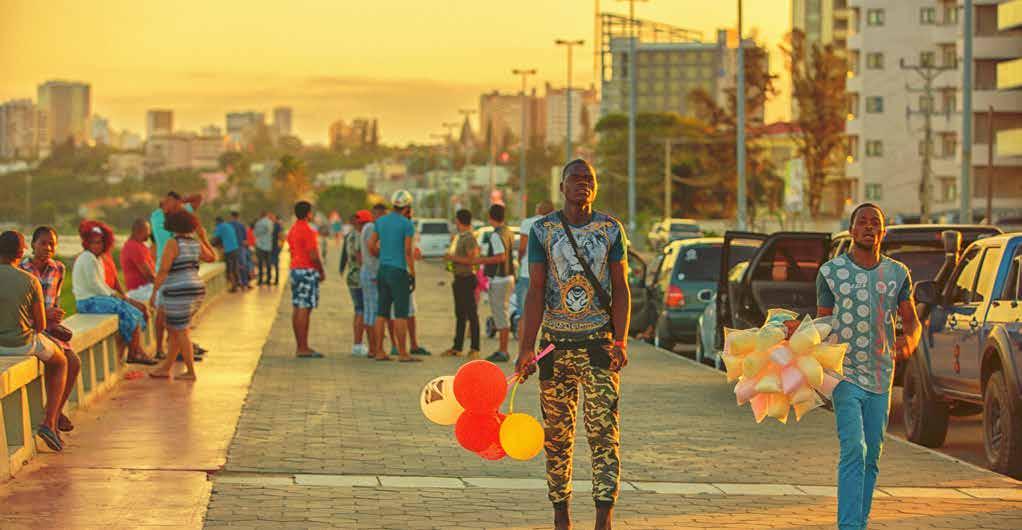
2 minute read
INTRODUCTION: Market Overview
Market
Overview
Advertisement
At the beginning of 2020, the African Development Bank published a positive outlook for the Mozambique economy. It projected growth of just under 6% for 2020 and 4% for 2021. Inflation had been brought under control to somewhere around 3%, poverty was falling (although still dismally high) and generally, the outlook was positive after a few years in which the country had endured devastating cyclones and the so-called ‘hidden debt crisis’.1
On March 22, the first case of Covid 19 was reported in Mozambique and the positive outlook was put on hold, which is where it remains six months later. It’s a harsh blow for the residents of a country which has been hit with its fair share of them, but it’s not alone: few countries have managed to avoid the scourge of the global pandemic. The good news for Mozambique is that it should be a short-term impact and the longterm outlook for the country remains positive.
At the centre of the story is Mozambique’s new role as a major player in the world gas industry. Its offshore gas discovery just over a decade ago means that the country is saturated in gas, to the extent that it could soon be the world’s fourth largest exporter of liquified natural gas (LNG). As the experience of other African countries such as Angola has shown, this will bring challenges - but few would argue against it being a huge opportunity for the country.
The government may already have earmarked some of the forthcoming LNG revenue to pay down its national debt, which skyrocketed to nearly $15 billion in 2019 - a 30% increase in the space of just two years, and the local currency deflating by around a third. The bad news for those in charge of the national coffers is that the first gas revenues are unlikely to arrive until the second half of 2023 at the earliest. Meanwhile, structural changes are required.
As always where African countries are concerned, the structural changes in Mozambique revolve around the ease of doing

business in the country. On the World Bank’s 2020 Doing Business Report, Mozambique ranks 138 out of 190 countries. Notably, it had implemented zero reforms in the 12 months covered by the report. For a country grappling with investor confidence issues, the reforms need to come a lot faster.
Steps have already been taken to ensure that the wealth generated by the country’s gas exports is enjoyed by the country’s citizens. Foreign investors which engage with local suppliers will be given preference and minimum quotas will apply to providing local employment on all projects. This will go some of the way to mitigating the high unemployment among Mozambique’s youth population, as well as helping the country upskill.
But as this report will outline, improving the transport and logistics infrastructure of Mozambique may be the most central tenet of the national and regional development. Few countries in the world - Myanmar springs to mind as a comparable - stand to gain so much by investing in this area. For far too long, transport and logistics have held Mozambique back. Now they hold the potential to put its economy on the path to success.
https://www.afdb.org/en/countries/southern-africa/ mozambique/mozambique-economic-outlook#:~:text=GDP%20 is%20expected%20to%20grow,2020%20and%204.0%25%20 in%202021.&text=The%20country%20is%20reducing%20its,of%20GDP%20in%202020%E2%80%9321.










